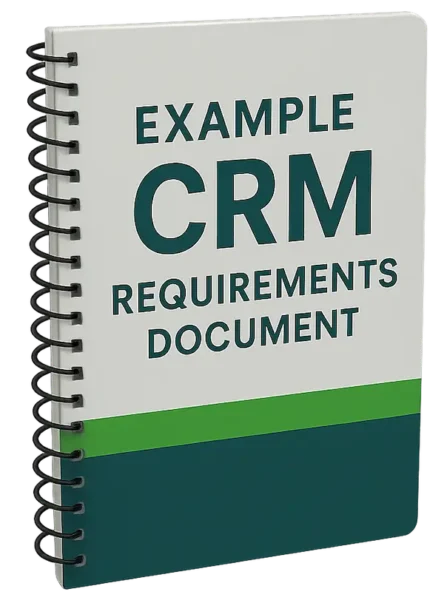A correctly implemented Customer Relationship Management (CRM) system can significantly enhance business operations.

However, several misconceptions may deter organizations from fully leveraging CRM capabilities. Let’s examine common CRM implementation myths and contrast them with reality.
CRM Implementation Is Quick and Easy
Reality: Implementing a CRM system is a complex process that requires careful planning and execution. It involves aligning the system with your business processes, migrating existing data, and training users.
Rushing this process can lead to data inaccuracies and low user adoption. A structured approach, including a deployment roadmap and comprehensive training, is essential for a successful implementation.
CRM Systems Are Only for Larger Companies
Reality: Modern CRM solutions are scalable and cater to businesses of all sizes. Small and medium-sized enterprises can benefit from CRM systems to streamline operations, enhance customer relationships, and drive growth.
Cloud-based CRM platforms offer cost-effective options suitable for smaller businesses.
CRM Implementation Is Too Expensive
Reality: While CRM implementation has considerable costs, the return on investment can be substantial. CRM systems can increase revenue and efficiency by improving sales processes, customer service, and data management.
Additionally, various CRM solutions offer flexible pricing models to accommodate different budgets.
CRM Systems Are Difficult to Customize
Reality: Contemporary CRM platforms are designed to be flexible so businesses can tailor the system to their specific needs.
Customization options enable organizations to modify workflows, fields, and interfaces to align with their unique processes, ensuring the CRM system adds maximum value.
If anything, CRM systems are too easy to customize. This can lead to runaway field creation.
CRM Implementation Is Primarily an IT Project
Reality: Successful CRM implementation requires collaboration across various departments, including sales, marketing, customer service, and IT.
Involving end-users in the planning and deployment phases ensures the system meets their needs and promotes higher adoption rates. Cross-departmental engagement is crucial for aligning the CRM system with business objectives.
CRM Systems Are Mainly for Managing Sales Contacts
Reality: Modern CRM systems offer functionalities beyond sales contact and opportunity management.
They integrate marketing automation, customer service management, analytics, and more, providing a comprehensive view of customer interactions and facilitating informed decision-making across the organization.
Data Migration to a New CRM Is Simple
Reality: Data migration is a critical and often complex component of CRM implementation. It involves transferring data from legacy systems, ensuring data quality, and mapping data accurately to the new system.
Proper planning and expertise are necessary to avoid data loss or corruption during migration.
CRM Systems Are Only for Customer-Facing Departments
Reality: While CRM systems are essential for customer-facing departments, they also provide value to other areas such as operations, finance, and product development.
CRM systems can offer insights into customer behavior and preferences to inform product improvements, financial forecasting, and operational efficiencies.
Once Implemented, CRM Systems Require Minimal Maintenance
Reality: Ongoing maintenance is vital to align the CRM system with evolving business processes and technological advancements.
Regular updates, user training, and data quality checks are necessary to ensure the system continues to deliver value and adapts to changing business needs.
CRM Systems Compromise Data Security
Reality: Reputable CRM vendors prioritize data security, implementing robust measures to protect sensitive information.
Features such as encryption, access controls, and compliance with data protection regulations are standard in many modern CRM systems.
Organizations must also follow best practices in data management to maintain security.
By dispelling these myths, organizations can approach CRM implementation with a clear understanding of its benefits and requirements, leading to more successful outcomes.



